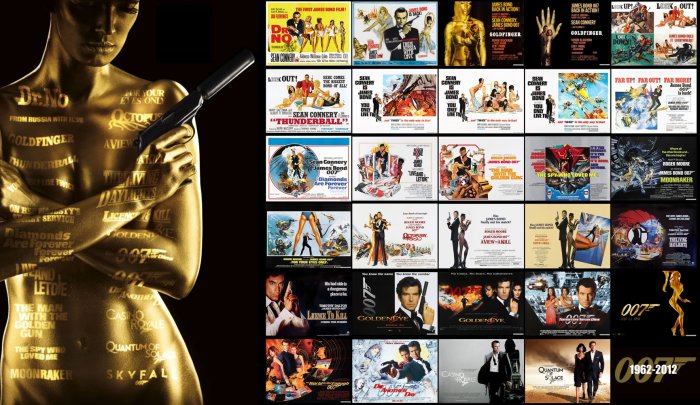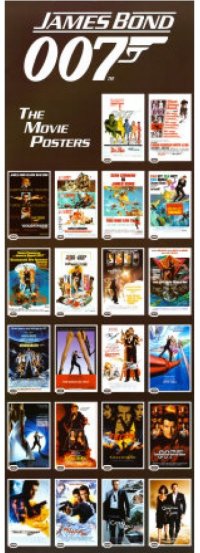
|
by Derek Johnson
| ||||
|
[Editor's Note: Here you will find the other Watching the Future columns.]
Inclusion stands among science fiction's chief virtues. While infighting breaks out, often about where the center presently resides, fans and critics think nothing of accepting works outside the genre into the pulp folds. Occasionally creators of such works howl with outrage both P.D. James and Cormac McCarthy expressed shock and anger when the community embraced The Children of Men (and its film adaptation by Alfonso Cuarón) and The Road as classics -- but such responses have seen a thaw uncharacteristic and even impossible fifty years ago. Nobel Prize–winner Doris Lessing, after writing her Canopus in Argos sequence, donned a Worldcon badge in the 80s without reservation. When an obviously befuddled reporter asked Michael Chabon how The Yiddish Policeman's Union was science fiction, the subtext underlying Chabon's response was his own surprise that such a question even needed to be asked. Whether taking place in apocalyptic futures, on other planets, or in a different time stream, all possess the furniture and even underlying themes described by Brian W. Aldiss in Billion Year Spree, even if the authors don't know it.
The apparatus seems right. Though in the books Bond frequently battles smugglers as well as SMERSH agents attempting to strike a blow to the West, he also finds himself against scientific masterminds building advanced nuclear rockets, toppling test launches of American missiles, and threatening to sterilizes entire strains of crops and livestock with mutated viruses (spread by women brainwashed using high-tech Pavlovian techniques). The movies pushed those boundaries even further, from Blofeld's plot to steal American and Soviet space capsules from the comfort of his volcano lair in You Only Live Twice to Hugo Drax's scheme to kill all humans while sitting comfortably in orbit in Moonraker. As the schemes became more fantastic, so too did Bond's arsenal: jetpacks (Thunderball); miniature helicopters (Little Nellie in You Only Live Twice); wearable fingerprints (Diamonds Are Forever); watches fitted with high-power magnets (Live and Let Die), explosives (Moonraker), television monitors (Octopussy), and lasers (GoldenEye); submersible cars (The Spy Who Loved Me); rocket-propelled motorcycles (Never Say Never Again); stun gas–emitting key rings (The Living Daylights); and, in perhaps the series' nadir, an Aston Martin equipped with a cloaking device (Die Another Day). (Not surprising, then, that when I was growing up reporters referenced any odd piece of weaponry and technology sheened with futurism as "James Bondian.") And, on one occasion, Bond even visits the Future: the pervasive television sets, surveillance cameras, and portable phones crowding the Tokyo streets of You Only Live Twice only differ from the Chiba City of William Gibson's Neuromancer (or, even more eerily prescient, the Tokyo of Pattern Recognition) in the technology platforming them. (Note too that Gibson namechecks Bond in Pattern Recognition, when Cayce Pollard considers how to burglar-proof a friend's London flat.) Give Aki an iPhone and Tiger Tanaka a Skype account and one would need to change very little of Roald Dahl's screenplay in order to remake it. Bond himself, as presented in the movies, appears cut from Heinleinean cloth, a kind of Jubal Harshaw in Tom Ford suits and a shoulder holster. His knowledge extends from solar power (The Man With the Golden Gun) and ICBM tracking systems (For Your Eyes Only) to microchips impervious to electromagnetic pulse weapons (A View to a Kill) and the weapons themselves (GoldenEye). Indeed, in Moonraker alone he identifies the molecular makeup of orchids and a high comfort level with space shuttle laser turrets. (Extensive, but not complete; I had to smile when Roger Moore's Bond picks up an operating manual in order to work Stromberg's submarine tracking system in The Spy Who Loved Me, proving that, at times, even 007 has to read the directions.) Language poses no barrier; in the course of 22 movies he speaks French, German, Italian, Portugese, Spanish, Greek, Japanese, and Egyptian Arabic, and demonstrates an understanding of Czech, Russian, and Korean, all unaided by a Babel fish. Manuel Garcia O'Kelly-Davis, Professor Bernardo de la Paz, and other, more dubious Competent Men should be such polymaths. For all of that, the film series never impressed me as sharing the concerns of science fiction. Maybe I've drunk too deeply from the well of genre criticism, but even the most overtly science fictional entries always struck me as aloof members of this particular club. Sure, a skiffy sheen may coat the Ken Adams–designed lairs and Richard Maibaum's convoluted plots, but they never genuinely feel like they actually belong to part of the sf canon. Part of it is that the conventions of the thriller seldom play well with the conventions of science fiction—thrillers rely on an air of paranoia and consequently fear, while science fiction is about discovery. But part of it, too, is that they simply do not meet much of the basic criteria set forth by many genre critics. If science fiction is, as Brian Aldiss writes in Trillion Year Spree, "the search for a definition of mankind and his status in the universe which will stand in our advanced but confused state of knowledge (science) and is characteristically cast in the Gothic or post-Gothic mode," then James Bond simply doesn't qualify. Certainly the Gothic infuses much of the series' sensibilities, but neither Bond nor his allies (be they Felix Leiter or Major Geoffrey Boothroyd) nor nemeses (be they Dr. Julius No or Gustav Graves) ever attempt to define humankind and its place in the universe. Nor does the series ever really attempt to deal "with the reaction of human beings to changes in science and technology," as Isaac Asimov described it. Bond may have the gadgets, and he may know how to use them, but his relationship with the tools is never a chief concern. They're not even published as science fiction (which would meet Norman Spinrad's definition), which makes classification all the more difficult. That early pictures fit heavily in the mold of Alfred Hitchcock (notably North by Northwest) only drives a deeper wedge between them and the genre. And yet one cannot divorce James Bond from science fiction completely. Like Arthur Conan Doyle's Sherlock Holmes or Kenneth Roberson's Doc Savage, the world created by Ian Fleming and, later, Albert R. Broccoli's EON productions, evokes a sense of danger, romance, and wonder than appeals to science fiction fans, regardless of how much genre content they contain or even how the times may change; born of the Cold War, Bond celebrates his fiftieth anniversary with Skyfall, inaugurating him (if advance word is accurate) fully into the post-9/11 world. It doesn't matter if Bond recognizes the genre, because the genre, as it did with P.D. James and Cormac McCarthy, recognizes him.
| ||||
|
Derek Johnson's critical work has appeared on SF Site, SF Signal, and Revolution SF. His first novel, the erotic thriller, Murder, Most Likely, written in collaboration with SammyJo Hunt, is forthcoming from Rebel Ink Press. He lives in Central Texas with the Goddess. |
|
|


